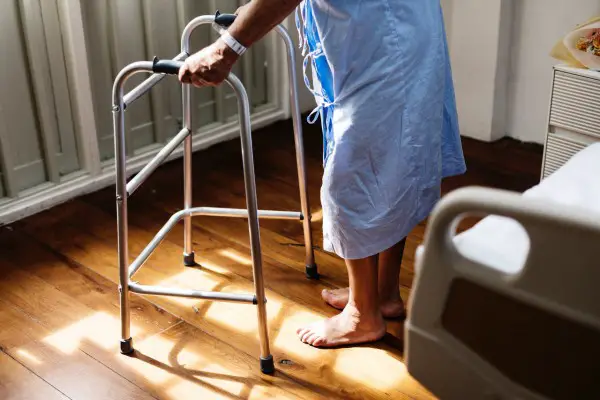Varicose veins are swollen twisted vessels most commonly affecting lower extremities such as the legs and feet. Damaged valves disrupt unidirectional blood flow, causing blood to pool, weakening vein walls, and causing dilation. Varicosities are a visible manifestation indicating something more severe like chronic venous insufficiency could be occurring. People often seek treatment when they begin to experience symptoms, like leg pain or swelling, or find varicose veins cosmetically unappealing.
Years ago surgical stripping, or removing, of veins was the only option for patients with venous insufficiency, but advancements in medical technology have broadened therapy options. Ablation procedures are minimally invasive, alternative treatments that use heat or chemicals to eliminate varicose veins. Radiofrequency Ablation (RFA) is one of the methods your Phlebologist can use to treat your varicose veins.
What Is Radiofrequency Ablation?
RFA uses high-frequency energy or heat to seal veins, redirecting blood flow to healthier vessels. After receiving local anesthesia or mild sedation, your Vein Specialist makes a small incision in your leg and inserts a catheter to direct energy or heat through, closing troubled vessels. These minimally invasive treatments are performed as an outpatient procedure, recovery time is quick, and patients can walk almost immediately following their surgery.
Radiofrequency Ablation Aftercare
Wearing your compression stockings is crucial to the success of RFA treatment! Compression helps to reduce bruising and clot formation in both the treated and untreated legs. Your Phlebologist may ask that you bring your stockings with you to apply directly post-procedure. Within 3 to 7 days following the ablation, your physician will schedule a follow-up appointment for a Duplex Ultrasound-a non-invasive procedure using sound waves to visualize blood flow through your circulatory system. A Post-Op ultrasound is to check and see if varicose veins have sealed. At your six-week evaluation, if your clinical exam and Ultrasonography do not reveal resolution of varicosities, your Vein Specialist may recommend an additional procedure. The next step to address the issue: Ultrasound Guided Sclerotherapy, to remove remaining truncal, or branch, veins (smaller varicose veins).
Side Effects
No medicine comes without side effects. If nerve damage occurs along the treated vessel, you may experience a tingling or prickly sensation afterward, though this is more likely to happen after Phlebectomy, (vein surgery). A significant benefit of alternative treatments is they are less invasive. Other possible side effects include tenderness, burning, and localized bruising. No matter how small the incision, infection is a possibility, so remember to keep the area clean and dry! Stay away from fancy or highly perfumed soaps, long soaking in the bath or lounging in a hot-tub! After ablation, doctors ask patients to leave hospital bandages on for at least 24 hours before removing wraps and washing. After cleansing, gently pat dry the area and try to avoid lotions.
Simple measures such as leg elevation, ice, and Ibuprofen to treat swelling, help to alleviate discomfort associated with phlebitis. Deep venous thrombosis or blood clots are always a concern after any medical procedure. Remember, wearing your compression stockings and sticking with a walking regimen helps reduce clot formation. And keep your physician in the loop! If you are experiencing any sensations that are unfamiliar or unpleasant, your Vein Specialist is a phone call away!
Vein Doctor Finder
Phlebology is steadily growing, and with 2000 plus members more vein doctors are available to treat venous disorders like varicose veins. Telephone interviews and mailed surveys reveal patient satisfaction with alternative varicose vein treatments, specifically in two areas: quick recovery time and minimal pain. If considering less invasive measures to address your venous insufficiency issues, talk with your Vein Specialist to see if Radiofrequency Ablation is an available treatment option for you. Remember to read reviews of others experiences before committing to a physician. If you find online recommendations overwhelming, perhaps visit your family doctor for a trusted referral to a qualified vein doctor!
Medically reviewed by Dr. Susanne Woloson on 5-01-2020.
*Disclaimer: “We are a participant in the Amazon Services LLC Associates Program, an affiliate advertising program designed to provide a means for us to earn fees by linking to Amazon.com and affiliated sites.”
Read This Next
Varithena is a minimally invasive procedure designed to treat varicose veins by using prescription medicine injected in the form of a microfoam to close off a non-functioning...
Read MoreInvasive varicose veins surgery is often considered a last resort for treating severely damaged veins; fortunately there are many types of varicose veins surgery, ranging...
Read MoreUltrasound guided sclerotherapy, or UGS, is a specialized procedure designed to treat and eliminate branch varicose veins located at or just below, the surface of the skin. ...
Read MoreDebbie Middleton’s lower left leg started swelling up. So, she was sent to a vein specialist. Turns out, she had varicose veins. A leaky vein in her leg needed to be closed...
Read More





